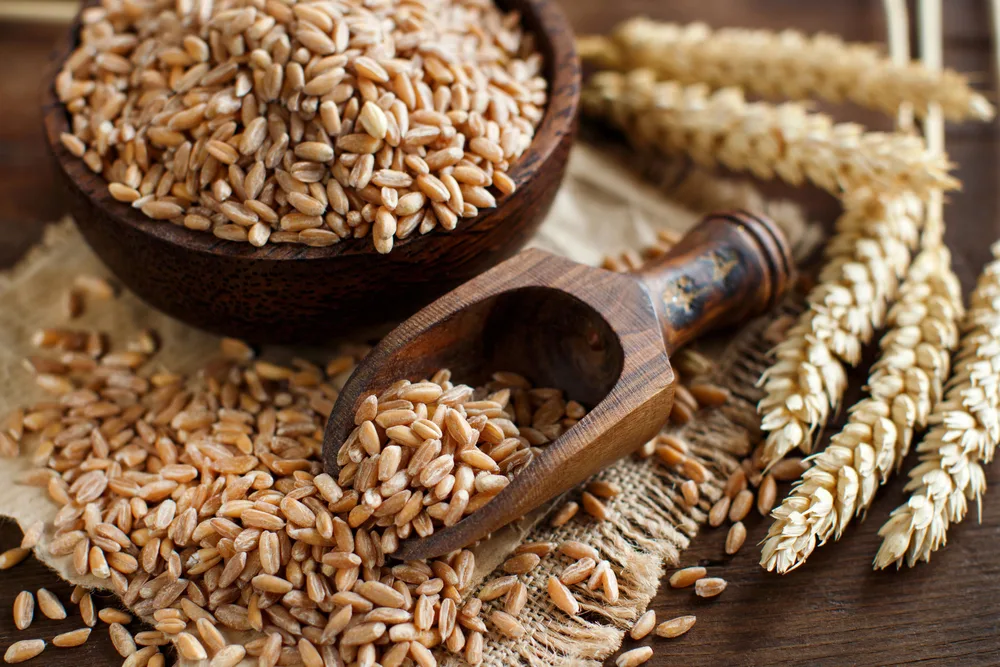Table of Contents
The keto diet has gained popularity as a lifestyle choice for weight management. It also has several other health benefits. But when it comes to diabetes, is keto good for people with diabetes?
Let’s start by breaking down the basics of the ketogenic diet. At its core, the keto diet is high in fat, moderate in protein, and very low in carbohydrates (1).
The macronutrient (macro) ratio recommended for the keto diet is:
- Fat: 70 to 80 percent of total daily calories
- Protein: 15 to 20 percent of total daily calories
- Carbohydrate: 5 to 10 percent of total daily calories
This shift in nutrient intake puts the body into a state called ketosis. In this state, the body starts to burn fat and produce ketones (byproducts of fat metabolism) as its primary source of fuel rather than relying on glucose from carbohydrates.
But is the keto diet a safe and effective option for individuals with diabetes? Let’s explore the potential benefits, risks, and best practices of a keto diet for diabetes.

How should people with diabetes eat?
Several key principles can help manage the condition when it comes to eating habits for individuals with diabetes, as discussed below (2).
- Balanced meals: A diet rich in vegetables, fruits, and lean proteins can provide essential nutrients while managing blood sugar levels.
- Carbohydrate management: Both sugary and starchy carbohydrates can raise blood sugar levels. The right amount and type of carbohydrates depend on individual factors like activity level and medications.
- Limiting refined carbs and sugars: Minimizing the intake of foods high in refined carbs and sugars, such as white bread and sweets. This is beneficial for blood sugar control.
- Fiber intake: High-fiber foods, such as whole grains and green, leafy vegetables, slow the digestion process, leading to more stable blood sugar levels.
- Healthy fats: Incorporating healthy fats from fatty fish and plant-based sources is beneficial. This can support heart health and improve blood lipid profiles.
- Portion control: Monitoring portion sizes helps prevent overeating and track blood sugar levels.
- Consistency is key: Eating at regular times helps the body better utilize insulin, whether it’s naturally produced or administered through medication.
- Hydration: Staying well-hydrated is important for overall health and can help manage blood sugar levels.
- Regular monitoring: Tracking blood sugar levels before and after meals can help inform dietary choices.
By following these principles, people with diabetes can create a healthy eating pattern to support their well-being and diabetes management.
Is the keto diet good for people with diabetes?
The keto diet has many potential benefits for people with diabetes. However, ongoing research examines how to follow the diet safely. So, does it help with diabetes? Let’s take a closer look at the research.
Short-term, the keto diet is effective at managing diabetes and improving symptoms. Research found that the keto diet can lower hemoglobin A1C (a marker for average blood sugar levels) in persons with type 2 diabetes and lead to weight loss, which can improve insulin sensitivity (3, 4, 5). The same research found the keto diet can also reduce the need for diabetes medication. However, long-term effects beyond one year are unknown due to lack of evidence (6).
The diet’s low-carb restriction makes it hard for many people to follow. High-carb foods play a significant role in most cultural diets and lifestyles. Because of these adherence challenges, the American Diabetes Association does not recommend any one specific diet for diabetes management. Instead, it supports eating lots of fruits, vegetables, lean proteins, and non-starchy carbs (7, 8).
Additionally, a diet with very low-carb intake has potential risks that need consideration and medical supervision. It may not be practical or safe for every person with diabetes.
Can you have high blood sugar while on a keto diet?
While the keto diet is effective at lowering average blood sugar levels for many people with diabetes (9), it may not be for everyone.
Does the keto diet work for insulin resistance?
Yes, a well-formulated keto diet can reduce insulin resistance over time. Insulin resistance occurs when the body requires higher-than-normal insulin levels to keep blood sugar in a healthy range due to impaired cell response.
In a meta-analysis of 14 studies, researchers found that for people with type 2 diabetes, a ketogenic diet was better than a low-fat diet at lowering blood sugar levels and improving insulin resistance (10). Both people with and without diabetes lost a significant amount of weight following the ketogenic diet. Additionally, for those with diabetes, the diet improved their cholesterol levels by reducing bad fats (triglycerides) and increasing good cholesterol (HDL). However, other health risk factors didn’t change much.
Overall, the ketogenic diet was more effective for metabolic health, particularly for those with type 2 diabetes, than low-fat diets.

Can the keto diet reverse diabetes?
While diabetes cannot literally be “reversed” or cured, the keto diet improves diabetes-associated conditions, including high blood sugar, weight gain, and insulin resistance. However, it’s important to understand the differences between type 1 and type 2 diabetes and how the keto diet may impact each type differently.
Type 1 diabetes and the keto diet
For individuals with type 1 diabetes, the keto diet may not be the best approach. Type 1 diabetes is an autoimmune condition where the body’s immune system attacks and destroys the insulin-producing beta cells in the pancreas, resulting in an absolute insulin deficiency.
The keto diet emphasizes reducing carbohydrate intake. While people with type 1 diabetes can’t produce adequate insulin, a significant reduction in carbohydrates can increase the risk of diabetic ketoacidosis (DKA) (11, 12). DKA is a life-threatening condition where the body produces excessive ketones and lacks sufficient insulin to regulate blood sugar levels (13).
Due to this increased risk, the keto diet for type 1 diabetes is generally not recommended as a primary dietary approach. Instead, a more balanced, carbohydrate-controlled diet, along with careful insulin management and close medical supervision, is the preferred strategy for managing type 1 diabetes.
Keto diet and type 2 diabetes
In contrast, the keto diet is highly beneficial for individuals with type 2 diabetes, which is characterized by insulin resistance. By reducing carbohydrate intake and shifting the body’s primary fuel source to fat and ketones, the keto diet can:
- Improve blood sugar control
- Enhance insulin sensitivity
- Promote weight loss
According to the systematic review of 12 clinical trials, the ketogenic diet improves blood sugar control and insulin sensitivity in people with type 2 diabetes (14).
Furthermore, research published in BMC Endocrine Disorders compared the keto diet with the standard diabetes diet in 60 overweight people with newly diagnosed type 2 diabetes (15).
The study indicated that both groups lost weight and improved in health markers like cholesterol and blood sugar after 12 weeks. However, the ketogenic diet group had more significant improvements. One downside was that this group also had increased uric acid levels. High uric acid levels lead to gout, a condition causing inflammation in joints. This is why they found it harder to stick to the keto diet long-term.
In summary, while the ketogenic diet shows promise in managing diabetes, particularly type 2, it is not a definitive cure. Individuals with either type 1 or type 2 diabetes need to approach the keto diet with caution and seek professional medical advice to tailor the diet to their specific needs and avoid potential risks.
Ketogenic diet for diabetes type 2 (beginner’s guide)
Tips to approach the keto diet safely
The ketogenic diet is effective for people with type 2 diabetes to manage their blood sugar levels and lose weight. However, since it involves restricting carb intake, it’s important to approach it safely to avoid potential risks.
Here are some tips for safely adopting keto for people with type 2 diabetes:
- Work with your doctor. Since reducing medication may be necessary as blood sugar decreases, it’s important that your doctor monitors the progress and adjusts any drugs as needed. They can also screen for any potential health risks.
- Go low-carb gradually. To give your body time to adapt, don’t attempt zero carbs right away. Gradually reduce intake over a few weeks to minimize side effects.
- Monitor blood sugar closely. Track blood glucose levels daily, especially when starting. Be aware of the symptoms of low blood sugar and keep fast-acting carbs on hand.
- Supplement electrolytes. Reduced carb intake can cause electrolyte imbalances. Drink broth or take supplements to get enough sodium, potassium, and magnesium.
- Be patient with progress. Results may be slower than expected. Stick with it consistently. Don’t get discouraged if weight loss and A1C (blood glucose) changes happen gradually.
- Choose nutrient-dense foods. Focus on healthy fats, proteins, and low-glycemic index (GI) veggies, that cause a slow and gradual rise in blood sugar because they are digested slowly, to avoid nutrient deficiencies. Take a doctor-approved multivitamin too.
- Address potential side effects. Be mindful of potential side effects, such as digestive issues, fatigue, or “keto flu,” and work with your healthcare team to manage them effectively.
- Remain flexible and adaptable. Be prepared to adjust the keto diet plan as needed, based on individual response and ongoing monitoring of health and diabetes management.




Precautions for people with diabetes before adopting the keto diet
With so many benefits, why is the keto diet bad for diabetes? Well, it’s because of its restrictive nature. Limited carb intake shifts the body into a state that must be closely monitored to avoid potential health issues.
Here are some risks associated with following the keto diet plan:
Hypoglycemia (Low blood sugar)
Very low carb intake can trigger hypoglycemic episodes in people with diabetes who rely on regular carbs to balance insulin and medications (16, 17). Frequent glucose checks and carb adjustments are vital to prevent dangerously low blood sugar.
Increased risk of heart disease
The keto diet is high in fats, though the recommendation is unsaturated/healthy fats like avocado and olive oil. However, unsupervised increased saturated/unhealthy fat intake can negatively impact heart health. This creates a risk of elevated cholesterol levels for those with diabetes who already face doubled cardiovascular risk (18). Moderation and quality dietary fat are key.
Ketosis and diabetic ketoacidosis
Although mild nutritional ketosis provides benefits, poor carb control or poor medication adherence can stress the body, especially the kidneys, if ketones are too high or if you are in prolonged ketosis. Checking blood ketone levels can help gauge ketosis safety.
Diabetic Ketoacidosis (DKA) is a serious complication of uncontrolled diabetes caused by/resulting in excess ketones in the blood (19). Symptoms, including nausea, frequent urination, and excessive thirst, require immediate emergency care to prevent life-threatening consequences.
Difference between ketosis and diabetic ketoacidosis


Signs you need immediate help
If you are following a keto diet and experience any of the following symptoms, it’s crucial to seek immediate medical attention:
- Nausea or vomiting
- Abdominal pain
- Rapid breathing
- Fruity-smelling breath
- Confusion or disorientation
These can be signs of diabetic ketoacidosis requiring prompt treatment to prevent potentially life-threatening complications.
Other side effects of the Keto diet
In addition to the risks associated with hypoglycemia, cardiovascular concerns, and diabetic ketoacidosis, other side effects of the keto diet include (20):
- Constipation or diarrhea due to the low-fiber nature of the diet
- Fatigue or “keto flu” during the initial transition period
- Nutrient deficiencies if the diet is not properly planned and supplemented
- Kidney stones, particularly in those with a history of kidney issues
It’s crucial for individuals with diabetes to work closely with their healthcare team, including a registered dietitian, to develop a well-formulated keto diet plan that addresses these potential side effects and ensures the adequate intake of essential nutrients.
Safety considerations before starting a Ketogenic diet


Before starting a ketogenic diet, it’s important to consult your doctor especially if you:
- Have a medical condition like heart or kidney disease where lower carb intake needs medical guidance and monitoring.
- Take medication where dosages may need an adjustment on a ketogenic diet.
- Have a history of disordered eating patterns like binging, purging, or restricting.
- Are pregnant, breastfeeding, or menstruating where restricting calorie/macros require precision.
- Are very active or do high-level sports where carb needs may vary.
- Have cholesterol issues on standard diet requiring tweaks to the percentages of keto macros.
Other diabetes-friendly diets
When it comes to managing diabetes, the ketogenic diet is not the only option. Several other eating plans can also be effective in helping people with diabetes improve their health. Let’s take a quick look at some of these other diabetes-friendly diets:
1. Mediterranean diet: This diet emphasizes fruits, vegetables, whole grains, and healthy fats, particularly olive oil. It includes moderate amounts of fish and poultry and limits red meat and sweets, which aligns well with diabetes management (21).
2. DASH diet: The Dietary Approaches to Stop Hypertension (DASH) diet is rich in fruits, vegetables, whole grains, and lean proteins. It’s low in sodium, sugar, and saturated fat, making it ideal for blood pressure and blood sugar control (22).
3. Plant-based diet: A diet centered around plant foods like vegetables, fruits, legumes, nuts, seeds, and whole grains can be effective for diabetes. It’s high in fiber and nutrients while low in calories and saturated fats (23).
Finding an eating plan that works for you and your needs is the key.




Can people with diabetes eat keto bread?
Yes, people with diabetes can eat keto bread as it has lower carbohydrate content, which may help stabilize blood sugar levels.
Can the keto diet cause diabetes in any way?
There is currently no evidence to suggest that following a ketogenic diet directly causes diabetes. However, it is important to note that there’s some evidence from animal studies that a keto diet might increase the risk of insulin resistance, which could potentially lead to type 2 diabetes. However, more research is needed.
Is the keto diet good for diabetes and cholesterol?
Yes, the keto diet can help control blood sugar levels and improve the lipids of people with diabetes.
How long is it safe to be in ketosis?
While short-term ketosis is generally safe, following a keto diet long-term might lead to nutrient deficiencies and other health issues. It’s important to consult a doctor to ensure it is effective.
At what blood sugar level does ketosis start?
While there are no definite blood sugar levels, generally ketosis begins when blood sugar levels drop below 70-100 mg/dL.
What are the 5 worst foods for blood sugar?
– Sugar-sweetened beverages (soda, juice, etc.)
– White bread, pasta, and rice
– Fruit-flavored yogurt
– Honey, agave, and other natural sweeteners
– Dried fruit
Are eggs good for diabetes?
Yes, eggs are an excellent choice for people with diabetes due to their high protein content and low carbohydrate levels.
Summary
So, is keto good for people with type 2 diabetes? Yes, it is, but remember that different diets suit different people and lifestyles. Finding an approach you can follow long-term is key for diabetes management. Making informed choices and working closely with your doctor, a healthy eating pattern can go a long way in controlling your blood sugar and promoting overall well-being. Regular exercise should also be part of the plan for optimal results.

















Comments
0